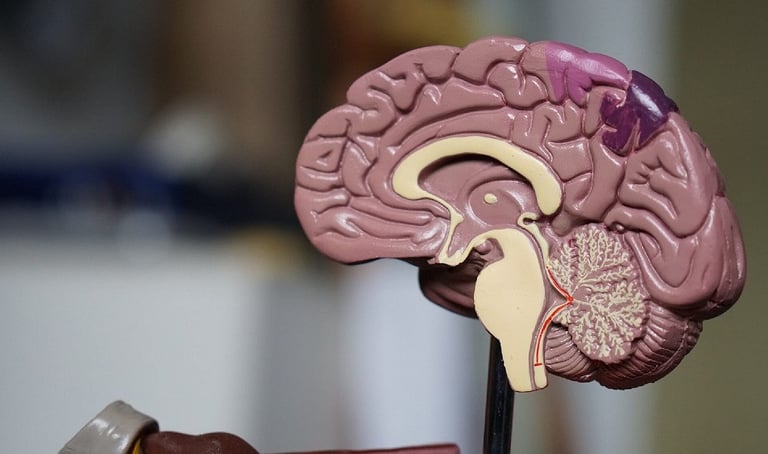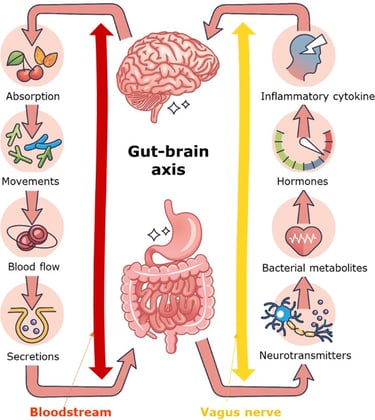The gut-brain axis


Our gut and brain communicate, and not just a little
This communication essentially takes place via two channels: the bloodstream and the vagus nerve. You've probably experienced abdominal pain when under great stress. Indeed, a psychological problem is perceived by the intestine and, conversely, a problem with intestinal health is also perceived by the brain. It's difficult to be in good psychological balance when you have intestinal inflammation.
The most recent studies indicate that we have around 86 billion neurons in our brain at the peak of our neuronal form. And, according to the CNRS, the French National Center for Scientific Research, we also have around 500 million neurons in our intestine, which is not insignificant. Here's a diagram illustrating the interactions between these two neuronal centers:
© VectorMine/stock.adobe.com
From the brain to the intestine, information is sent to control digestion by managing its secretions, movements, absorption functions and blood flow. Stress and anxiety can promote abdominal pain and cramps, as many of us have already experienced, as well as intestinal diseases.
In this context, it's important to fight chronic stress. One-off stress is not very serious, but chronic stress leads to the depletion of neurotransmitters and cortisol. Since we can't always eliminate all sources of stress from our lives, we need to learn how best to manage it. Meditation, the practice of yoga or cardiac coherence, regular moderate physical exercise and cognitive-behavioural therapy techniques in psychotherapy are good options to explore. Alcohol consumption should also be avoided, as it overconsumes B vitamins and increases urinary excretion of magnesium, the anti-stress mineral par excellence. Good sleep is also important, as it stimulates the production of growth hormone, which reduces stress.
From the gut to the brain, gut bacteria produce neurotransmitters (for example, 90% of our serotonin is produced by our gut bacteria). They also produce neuropeptide hormones, inflammatory cytokines and bacterial metabolites. So, from the gut to the brain, there are messages of a nervous, endocrine (hormonal), immune and microbial nature.
Given that an inflammatory state of the gut is perceived by the brain and can promote mental health issues (as well as neurodegenerative diseases), it's important to fight such inflammation by consuming enough pre- and probiotics and omega 3 fatty acids, and by supplementing with vitamin D. Specific probiotics can also help address psychological issues. For example, the Bifidobacterium longum NCC3001 strain has been proven effective against depression. There are others, too, and there are strains proven effective against stress and anxiety.
To find out more, also read these articles:
On the links between mental health and diet: https://isabellemaesnutrition.com/en/mentalhealth
Brain picture by Robina Weermeijer


